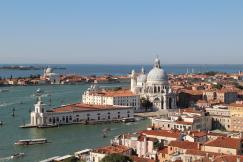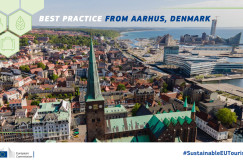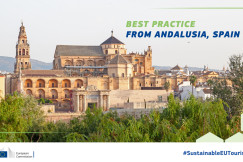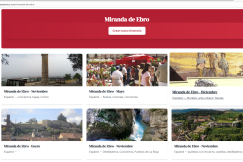Best practices
06 November 2025
Sustainable EU Tourism Project - Best Practice: Zell am See-Kaprun
Best practices
06 November 2025
Gastronomy tourism
Health and medical tourism
Mountain tourism
+14 more
Login / create an account to be able to react
-
15
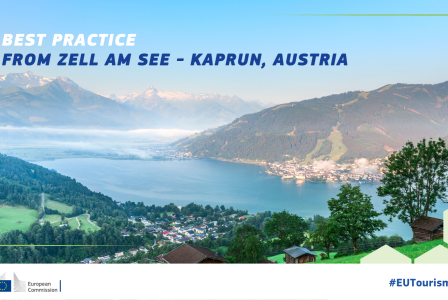
Zell am See-Kaprun, Austria, tackled climate risks by adopting a sustainable tourism strategy focused on clean energy, smart mobility, and stakeholder collaboration. Key measures like free public transport and solar-powered ski resorts boosted eco-efficiency, earning the region UNWTO Best Tourism Village status and inspiring future green tourism models.
Sustainable EU Tourism project
Sustainable EU Tourism project
Topics
Austria
Destination Management & Marketing Organisations
-
Specific types of tourism
-
-
Gastronomy tourism
-
Health and medical tourism
-
Mountain tourism
-
Rural tourism
-
Sports tourism
-
Wellness tourism
-
-
Transition Pathway Strategic Areas
-
-
Best practices, peer learning and networking
-
Governance of tourism destinations
-
Sustainable mobility
-
Tourism strategies
-
-
Business activities
-
-
Holiday Housing / Apartments and other short stay accommodation
-
Hotel and similar accommodation
-
Other
-
Other accommodation
-
Rail Passenger transport
-
Restaurants, cafes and bars (Food and Beverage serving activities)
-
Road passenger transport
-
Share
Zell am See-Kaprun, Austria, has been recognised as a best practice by the Sustainable EU Tourism project for the development of a climate and energy action plan in collaboration with all stakeholders along the value chain, which led to a series of climate protection and adaptation measures.
In 2020, due to the vulnerability to and risks of climate change (glacier retreat, lack of snow, extreme weather, decline in permafrost), the municipality applied for the federal programme “Climate and Energy Model Region” and presented a concept focused on tourism that includes 11 climate protection and mitigation measures on topics such as mobility, energy and infrastructure, and sustainable procurement of regional food. The measures concern sustainable mobility solutions, the improvement of energy efficiency and the use of renewable energies, and the reduction of the environmental impact of ski resorts.
Zell am See-Kaprun's best practice illustrates how destinations impacted by climate change can successfully reduce their environmental footprint and CO2 emissions through a comprehensive sustainability strategy, supported by coordinated local efforts. For more details on the key challenges the destination has faced, and the solutions implemented to address them, please refer to the attached document.
Documents
Comments (0)
Related content
See also
Sustainable EU Tourism - Key challenges and best practices
- Categories
- Coastal, maritime and inland water tourism Cultural tourism Ecotourism +64 more
Platform for creating accessible and multilingual itineraries with voice assistant
- Categories
- Coastal, maritime and inland water tourism Cultural tourism Ecotourism +64 more
Sustainable EU Tourism Project - Best Practice: Ahr Valley
- Categories
- Gastronomy tourism Rural tourism Wellness tourism +33 more


